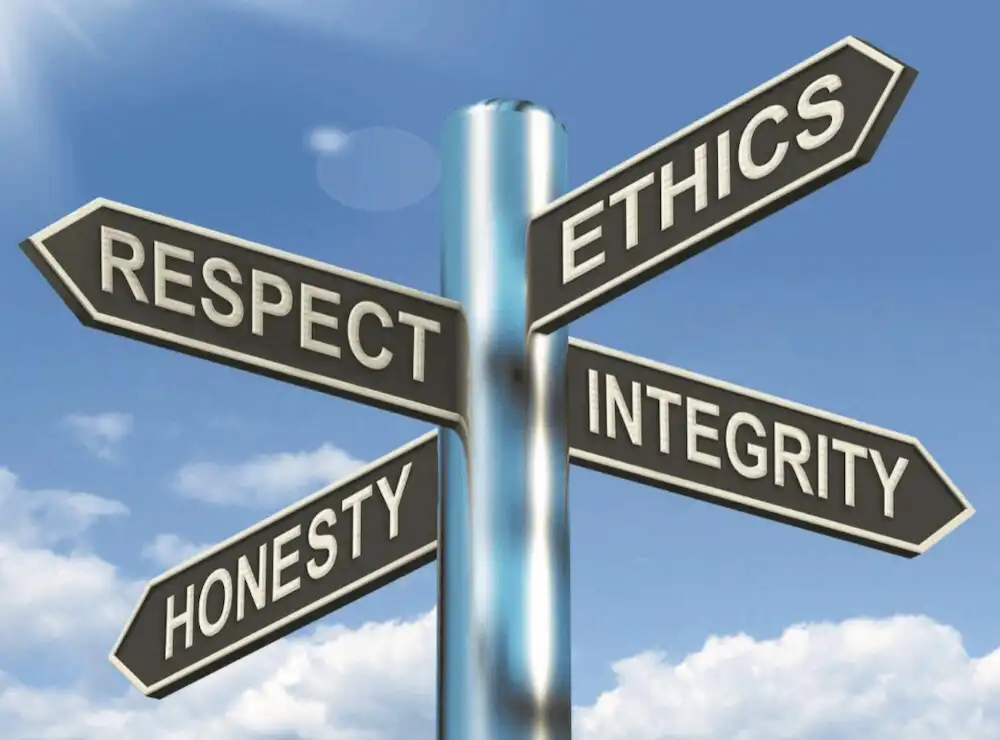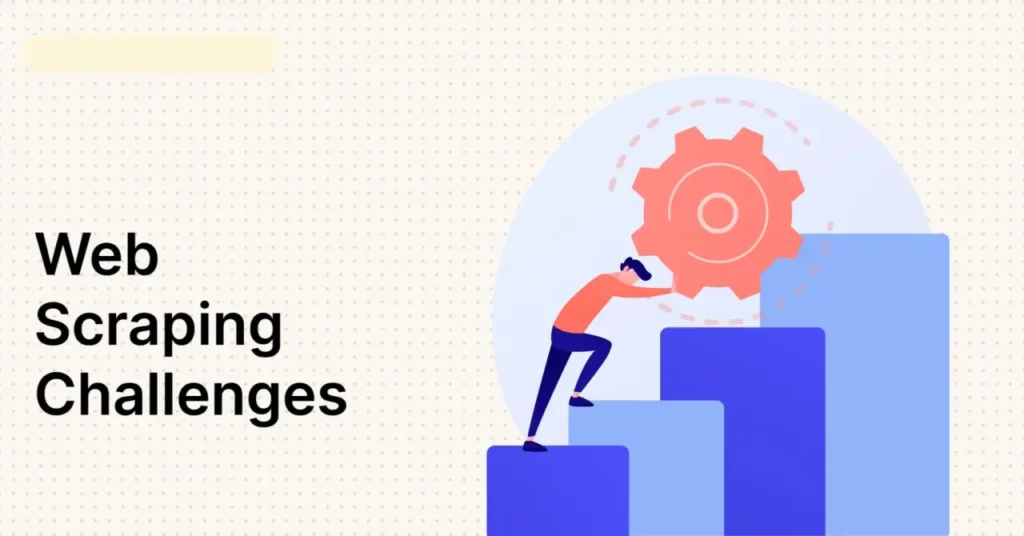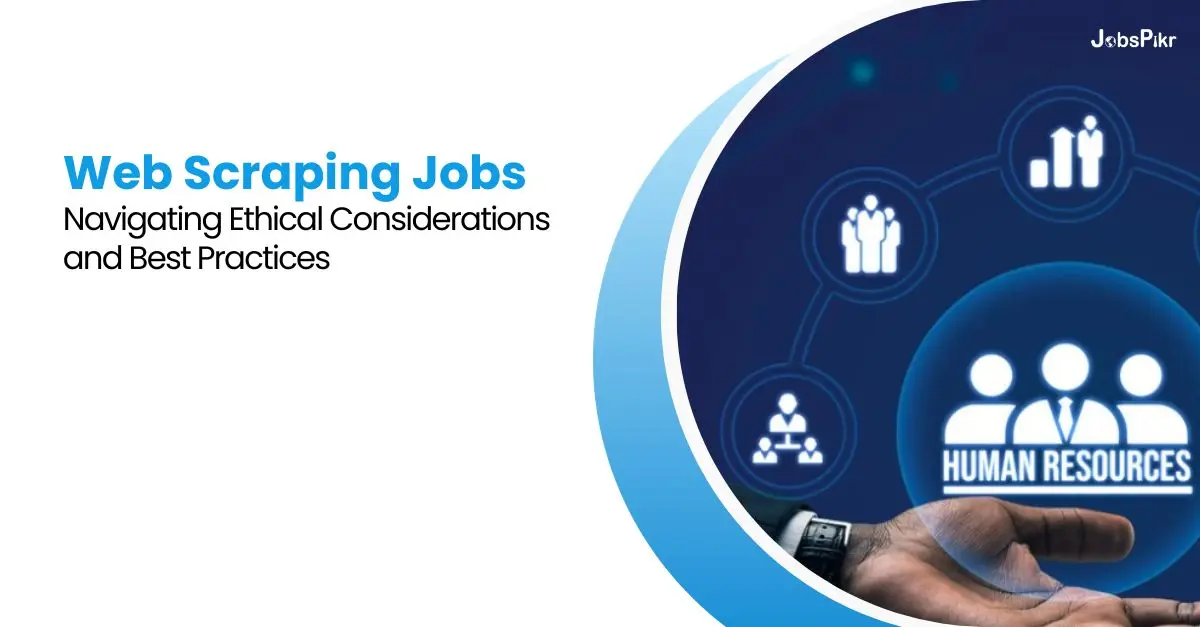Introduction
In today’s data-driven world, ethical web scraping has emerged as a popular technique for extracting data from various websites. Web scraping jobs involve the use of automation tools and scripts to gather information from the web for analysis or other purposes. While ethical web scraping can offer numerous benefits, such as market research and competitor analysis, it is essential to navigate ethical considerations and follow best practices to ensure responsible and legal data harvesting.
Understanding the Importance of Ethical Considerations
Ethical considerations play a vital role in web scraping jobs. It is crucial to respect the rights and privacy of website owners and users. Harvesting data without permission or using it for unethical purposes can lead to legal consequences and damage to a company’s reputation.

Web scrapers should consider the following ethical factors:
- Respect for ownership: Website owners have the right to control their data and determine how it is accessed and used. Scrapers should obtain explicit permission to access and gather data from a website.
- Transparency: It is important to provide clear and transparent information to users regarding the data collection process. This includes notifying users about the use of cookies and tracking technologies.
- Data protection: Scraper must take measures to protect the personal data and privacy of individuals. Sensitive information should be handled securely, and data practices should comply with applicable data protection laws.
Identifying the Scope of Web Scraping Jobs
Web scraping jobs can vary significantly in terms of their goals and scope. It is essential to define the purpose and boundaries of the scraping project before proceeding.
Here are some key considerations for identifying the scope of web scraping jobs:
- Target websites: Determine which websites or sources you need to scrape data from. Consider factors like website policies, terms of service, and copyright restrictions.
- Types of data: Specify the types of data you want to scrape, such as text, images, or structured data. Be aware of any data that may be protected by intellectual property or privacy regulations.
- Frequency and volume: Decide how frequently you need to scrape data and the volume of data required. Consider the impact on the target website’s server load and performance.
Exploring the Legal Landscape of Web Scraping
Web scraping operates within a legal gray area. While it can be a legitimate and valuable activity, it is essential to understand the legal landscape to avoid any legal issues.
Here are some legal aspects to consider when conducting web scraping jobs:
- Terms of Service: Review the terms of service of the target website. Some websites explicitly prohibit scraping or impose restrictions on the use of scraped data.
- Copyright law: Respect copyright laws when scraping content that is protected by intellectual property rights. Avoid scraping proprietary content without permission.
- Publicly available data: Data that is openly and publicly accessible may be less restrictive to scrape. However, always review the specific conditions and terms of use.
- Data protection laws: Exercise caution regarding data protection laws, including the General Data Protection Regulation (GDPR), when extracting data that may include personal information. Adhere to compliance requirements and obtain any necessary consent when applicable.
Best Practices for Conducting Web Scraping Jobs
To conduct web scraping jobs responsibly and ethically, it is crucial to follow best practices. These practices not only help you gather accurate and reliable data but also mitigate risks and challenges.
Here are some best practices for conducting web scraping jobs:
- Target website’s robots.txt: Always check a website’s robots.txt file to see if it allows or restricts ethical web scraping. Respect the directives mentioned in the file.
- Request limits: Avoid overloading the target website’s servers by setting reasonable request limits. Observe limitations specified in the target website’s terms of service.
- Use reputable scraping tools: Utilize reliable scraping tools and frameworks that comply with legal and ethical standards. These tools often offer features for managing request frequency and handling cookies.
- Crawl responsibly: Use appropriate crawling techniques, such as implementing crawling delays and avoiding disruptive behavior, to prevent unnecessary strain on the server.
- Privacy considerations: Scraper should mask their IP address and avoid collecting or handling any personally identifiable information (PII) without explicit consent.
- Monitoring and adjustments: Regularly monitor and adapt scraping processes to comply with any changes in the target website’s terms of service or legal requirements.
The Role of Data Privacy
Data privacy is a critical aspect of web scraping jobs. The protection of individuals’ personal information should be a top priority. Scraper should handle data in accordance with relevant data protection laws and regulations.
Consider the following data privacy measures when conducting web scraping jobs:
- Anonymization: Remove or encrypt any personally identifiable information (PII) from the scraped data to ensure user privacy.
- Consent: Obtain explicit consent from users if scraping involves collecting personal information. Failure to obtain consent may result in legal consequences.
- Data storage and deletion: Securely store collected data and establish procedures for deleting data when it is no longer needed. Comply with any data retention and deletion requirements.
Handling Sensitive Information Safely
In some cases, web scraping jobs may involve handling sensitive information, such as financial data or healthcare records. It is crucial to handle such information safely to maintain confidentiality and prevent data breaches.
Consider the following practices for handling sensitive information during web scraping jobs:
- Encryption: Use encryption techniques to protect sensitive data during storage and transmission.
- Secure data storage: Ensure that sensitive data is stored securely, using appropriate access controls and encryption methods.
- Data access controls: Limit access to sensitive data and enforce strict authorization controls to prevent unauthorized access.
- Regular security audits: Conduct regular security audits to identify vulnerabilities and address them promptly.
Ensuring Data Quality and Accuracy
Data quality and accuracy are paramount to the success of web scraping jobs. It is crucial to ensure that the scraped data is reliable and accurate.
Consider the following practices for ensuring data quality and accuracy:
- Data validation and cleansing: Implement data validation techniques to identify and handle errors and inconsistencies in the scraped data.
- Monitoring and error detection: Frequently monitor the scraping process for errors or patterns that may affect data quality. Implement error detection mechanisms to identify and rectify issues.
- Handling dynamic websites: Adapt scraping techniques to handle websites that frequently update or change their structure to ensure accurate data extraction.
Better job data scraping is crucial for ensuring data quality and accuracy, as it directly impacts the reliability and usefulness of the collected information. Effective scraping techniques involve employing robust algorithms that can handle dynamic web elements, extract relevant data fields, and filter out noise and irrelevant content. Additionally, utilizing validation checks and automated data cleaning processes helps in maintaining the integrity of the data by removing duplicates, correcting errors, and standardizing formats. Regular updates and monitoring are also essential to adapt to changes in website structures and to continuously refine scraping strategies. By prioritizing these practices, businesses can achieve high-quality, accurate job data that supports informed decision-making and strategic planning.
Mitigating Potential Risks and Challenges

Source: LinkedIn
While conducting web scraping jobs, there are several risks and challenges that may arise. It is important to be aware of these potential pitfalls and take appropriate measures to mitigate them.
Here are some common risks and challenges associated with ethical web scraping and the corresponding mitigation strategies:
- IP blocking: Websites may block scraper’s IP address if they detect excessive scraping activity. Rotate IP addresses or use proxy servers to avoid being blocked.
- Legal actions: Scraper should ensure compliance with legal requirements and obtain necessary permissions to avoid legal actions from website owners.
- Data reliability: Scraper should regularly monitor scraped data for accuracy and consistency. Implement quality checks and verification processes.
- Website changes: Websites may change their structure or layout, affecting scraping processes. Regularly review and update scraping scripts to adapt to changes.
Conclusion
Web scraping jobs offer valuable insights and data for various purposes. However, it is crucial to approach ethical web scraping responsibly, adhering to ethical considerations and best practices. By understanding the legal landscape, ensuring data privacy, taking appropriate security measures, and validating data accuracy, web scrapers can navigate the challenges and risks effectively while maximizing the value derived from ethical web scraping activities.
To stay ahead in web scraping jobs while adhering to ethical standards and best practices, consider signing up with JobsPikr.



